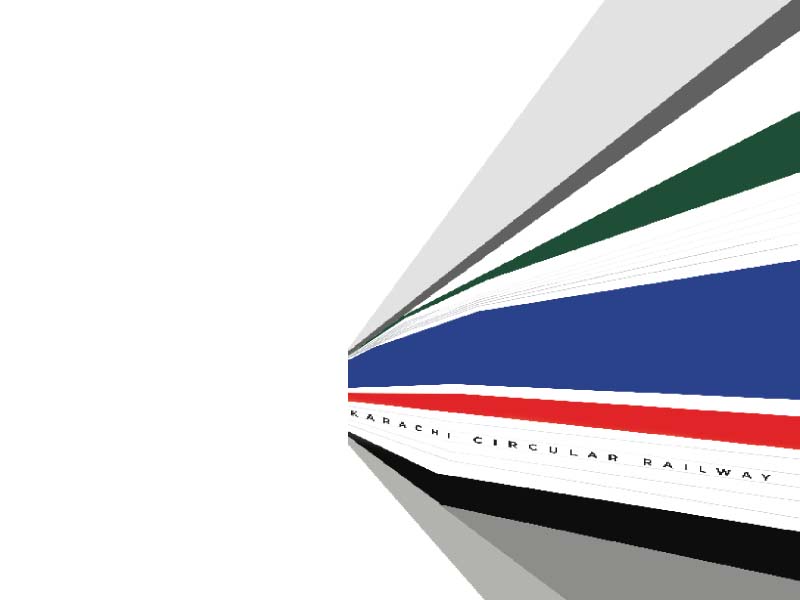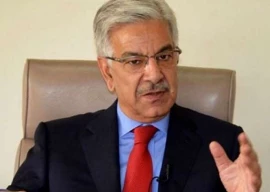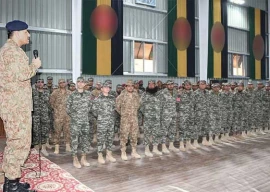
The Pakistan Railways partially restored the Karachi Circular Railway in November 2020 after more than two decades overcoming some of its shortcomings of the past.
This is the third attempt to restore the circular railway project. Unfortunately, the dwindling number of passengers depict that the project is most likely floundering. Due to the financial deficit, Pakistan Railways has reduced one train and restricted two operations to sustain the project for now.
Around the world, for the success of train projects components such as standard gauge, light rail and feeder bus services are considered mandatory. However, the KCR is running with a broad gauge and heavy engine. The speed of the train has also been kept slow owing to the presence of short-distance stops. In the KCR, the number of passengers is abjectly low as it takes them a lot of time to reach a station due to the lack of a feeder bus service.
In November 2020, the Supreme Court had ordered the revival of the KCR on an emergency basis. Following which, Pakistan Railways scrambled to partially restore the KCR. This it did without a comprehensive plan. On the condition of anonymity, an official of the Sindh Transport Department said that the railways was not serious about reviving the project, it merely did so to avoid contempt of court proceedings.
Read more: PR limits KCR operations
The service was restored on November 19, 2020, from the City station to Pipri station. It is currently operating on the main line. It was learnt that the 44km-long loop of the KCR could not be restored immediately due to its dilapidated condition.
On February 10, Pakistan Railways had restored 14km of the loop from the City station to the Orangi station. Despite the train running through a densely populated area, the presence of passengers is minimal.
The KCR project was started in 1964 and completed in 1970. Almost 44 kms of track was laid up to Liaqatabad, Nazimabad, Orangi, SITE, Gulshan-e-Iqbal, Gulistan-e-Jauhar and other areas. By 1980, the service was quite successful and millions of people benefited from it. However, due to a continuous increase in the population of Karachi, the demand for public transport also began to increase. Despite the demand, Pakistan Railways did not expand the project. On the contrary, the Sindh government issued route permits to minibuses under a new public transport scheme.
As the circular railway stations were far from people’s homes and destinations, the number of passengers started to decline. In wake of the situation, the federal and provincial governments also made no efforts to preserve the circular railway. The KCR was finally shut down in 1999.
In 2005, under former military ruler Pervez Musharraf, Japan International Cooperation Agency (JICA) had launched a plan to revive the circular railway.This also shut down due to a lack of interest from passengers.
In 2018, the Dhabeji Express was inaugurated by President Arif Alvi. This service was shut down five months later.
An official of Pakistan Railways, speaking on condition of anonymity, said that modern technology could not be immediately implemented for the restoration of the KCR, as it would require time and huge funding. “The federal government has allocated Rs1.8 billion for new bogies and engines.”
Talking to Express Tribune, a Pakistan Railways spokesperson said that transport facilities, spread across 74km, are being provided from the Orangi station to Dhabeji under the KCR at present. “The remaining 30km loop will be gradually restored under phase-II and phase-III. The phases would require of the Pakistan Railways and the Sindh government to build necessary infrastructure including an underpass. The railways will also have to build an elevated track at one place.”
The spokesperson said that due to the construction of the Green Line, the flyover above the circular railway track at Nazimabad has been demolished. Due to which, Pakistan Railways will have to construct an elevated track for the KCR.
Talking to The Express Tribune, Sindh Transport Department Secretary Shariq Ahmed said that the Sindh government would construct 10 flyovers and underpasses at various crossings to facilitate the KCR. “For restoration of the project, Rs5 billion have been allocated. The task has been assigned to the Frontier Works Organisation (FWO), which is shaping the feasibility of the project.”
Published in The Express Tribune, February 17th, 2021.






1730379446-0/WhatsApp-Image-2024-10-31-at-17-56-13-(1)1730379446-0-270x192.webp)
















COMMENTS
Comments are moderated and generally will be posted if they are on-topic and not abusive.
For more information, please see our Comments FAQ